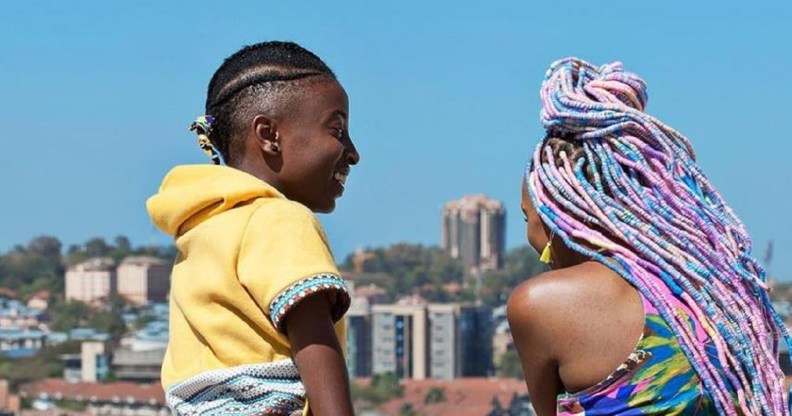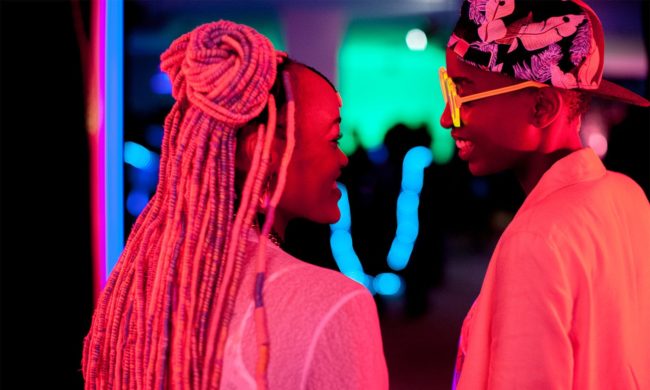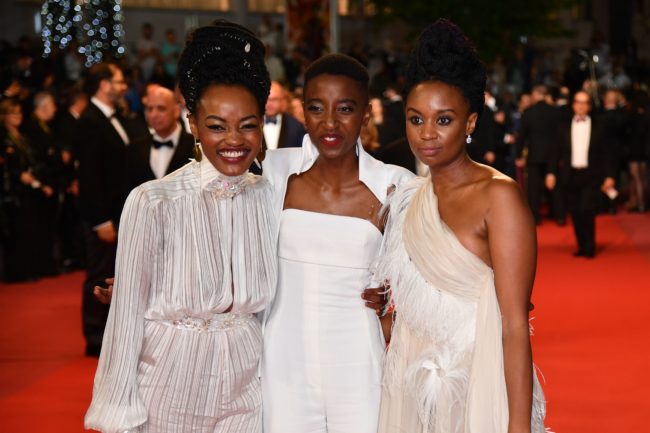Lesbian film Rafiki wins three awards at US festivals, despite ban in Kenya

The two main characters in Rafiki, Kena and Ziki (Rafiki)
The two main characters in Rafiki, Kena and Ziki (Rafiki)
Lesbian film Rafiki has won three awards at two US film festivals, despite still being banned in its home country of Kenya.
The groundbreaking film – which is being tipped for an Academy Award for Best Film in a Foreign Language – previously broke box office records in Kenya when the ban was temporarily removed.

The two main characters in Rafiki look at each other (Rafiki)
Now, it has won the audience and jury awards for Best Narrative Feature at the TWIST: Seattle Queer Film Festival, and was awarded the Silver Hugo award at the Chicago International Film Festival.
Ben McCarthy, executive director of Three Dollar Bill Cinema, where the Seattle Queer Film Festival was held, praised the film.
“We are thrilled that Rafiki won both the audience and jury awards for narrative feature and that we can bring further attention to this important, beautiful film from a country whose LGBTQ community faces rampant discrimination and fear of imprisonment.”
A colonial-era penal code in Kenya criminalises sodomy, which is interpreted as sex between men. Sex acts between women are not specifically referenced by the archaic law, but lesbians can face extreme persecution in the country.
Despite this, when the ban on Rafiki was temporarily lifted, so it would be eligible for Oscars consideration, it shattered box office records in the seven days it was screened.
Cinemas in Nairobi rapidly added extra screenings to the film to keep up with the demand from sold-out crowds.

The film was banned by Kenya because of its “homosexual theme and clear intent to promote lesbianism” (Rafiki)
The film’s director, Wanuri Kahiu, recently said she would keep fighting for the film to be widely released in Kenya after it was banned for promoting “gayism.”
“There’s this new East African word called ‘gayism,’ and the conversation was about that, how this film is promoting and spreading ‘gayism.’ The judge said, ‘No, you don’t catch it,’ and lifted the ban,” she said.
“We’re going back into court to continue to fight for the larger freedom of expression case [to secure a permanent release].
“We have a really young constitution but our constitution hasn’t been tested yet. Freedom [of] expression is one bit.

Kenyan actresses Sheila Munyiva and Samantha Mugatsia and Kenyan director Wanuri Kahiu (ALBERTO PIZZOLI/AFP/Getty)
“The laws that ban the film are colonial laws, and we are asking for the laws to be updated so that they reflect the constitution that we have. There’s nothing in the constitution that says we can’t make films like this.
“I never considered myself an activist… but my work became work that you needed to advocate for. I was pushed into a space where I had to advocate for the work I was creating.”
Academy Award nominations will be announced in January 2019, with Rafiki’s cast and director hoping for a nod.

